
















I am thrilled and humbled to be stepping into the editor role at Indiana Connection, succeeding the inimitable Emily Schilling. I am grateful to everyone at Indiana Electric Cooperatives for this opportunity, and I’m also extremely nervous. Have you ever felt that way when you started a new role or job?
Emily Schilling is someone that I respect immensely. She has been editing what is now known as Indiana Connection for 37 years, so the idea of anyone else doing this job just feels wrong — but I will do my very best to uphold Emily’s tradition of journalistic excellence.

A little about me: I was born and raised in Indianapolis and graduated from IU Bloomington. I moved to NYC for graduate school and worked in the magazine industry there for many years, but when it came time to start a family, my husband, Ryan, and I knew there was no better place than Indiana to do so. Our daughter is currently in first grade, and we are grateful every day for her. I am also a shameless animal lover and dog fosterer (my family is currently fostering three dogs as I write this), so if you ever meet me, please tell me about your family and your pets — I want to know about both!
That being said, Indiana Connection is not about me, it’s about YOU and all the other hard-working, talented Hoosiers that you know. The thought of sharing some of your stories is what I’m most excited about as I embark on this journey, so if you have an idea to share, please email me. I’d love to hear from you.
Stephanie Groves Editor sgroves@indianaec.orgOn the menu: May: Strawberry recipes, deadline March 1. June: Recipes using Jell-O, deadline April 1. If we publish your recipe on our food pages, we’ll send you a $10 gift card.
Three ways to contact us: To send us recipes, photos, event listings, letters and entries for gift drawings, please use the forms on our website indianaconnection.org; email info@indianaconnection.org; or send to Indiana Connection, 8888 Keystone Crossing, Suite 1600, Indianapolis, IN 46240-4606.
VOLUME 72 • NUMBER 8
ISSN 0745-4651 • USPS 262-340
Published monthly by Indiana Electric Cooperatives
Indiana Connection is for and about members of Indiana’s locally-owned, not-for-profit electric cooperatives. It helps consumers use electricity safely and efficiently; understand energy issues; connect with their co-op; and celebrate life in Indiana. Over 304,000 residents and businesses receive the magazine as part of their electric co-op membership. Member’s cost per issue is approximately 32 cents, plus postage.
CONTACT US:
8888 Keystone Crossing, Suite 1600 Indianapolis, IN 46240-4606 317-487-2220
info@indianaconnection.org
IndianaConnection.org
INDIANA ELECTRIC COOPERATIVES OFFICERS:
Randy Kleaving President
Steve McMichael Vice President
Dr. Richard Leeper Secretary/Treasurer
Tom VanParis Interim CEO
EDITORIAL STAFF:
Stephanie Groves Editor
Richard George Biever Senior Editor
Holly Huffman Communication Support Specialist
Lauren Carman Communication Manager

Kiley Lipps Graphic Designer
Amber Knight Creative Manager
Mandy Barth Vice President of Communication
ADVERTISING:
American MainStreet Publications
Cheryl Solomon, local ad representative; 512-441-5200; amp.coop
Crosshair Media 502-216-8537; crosshairmedia.net
Paid advertisements are not endorsements by any electric cooperative or this publication.
UNSOLICITED MATERIAL:
Indiana Connection does not use unsolicited freelance manuscripts or photographs and assumes no responsibility for the safe-keeping or return of unsolicited material.
SUBSCRIPTIONS:
$12 for individuals not subscribing through participating REMCs/RECs.
CHANGE OF ADDRESS:
If you receive Indiana Connection through your electric co-op membership, report address changes to your local co-op.
POSTAGE:
Periodicals postage paid at Indianapolis, Indiana, and at additional mailing offices.
POSTMASTER:
Send change of address to: Indiana Connection, 8888 Keystone Crossing, Suite 1600, Indianapolis, IN 46240-4606. Include key number.
No portion of Indiana Connection may be reproduced without permission of the editor.




Romantic getaways in Indiana (NOT IN ALL EDITIONS)


26 RECALLS
Samsung recalls top-load washing machines (NOT IN ALL EDITIONS)
Like every state, Indiana has claimed many natural and fabricated features and objects as officially “ours.” These items reflect Hoosier history and culture. As the state may be on the verge of adding an official sandwich, here’s a review of some of our state’s existing official “this and thats.”
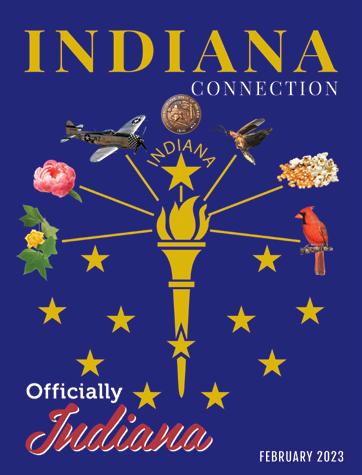


www.harrisonremc.com
CONTACT US
812-738-4115
812-951-2323
Fax: 812-738-2378
Click on “Contact Us” at www.harrisonremc.com.
OFFICE HOURS
7:30 a.m.–4:30 p.m., Monday–Friday
DRIVE-THRU WINDOW HOURS
7:30 a.m.–4:30 p.m., Monday–Friday
LOBBY HOURS
8 a.m.–4 p.m., Monday–Friday
STREET ADDRESS
1165 Old Forest Road, Corydon, IN 47112
MAILING ADDRESS
P.O. Box 517, Corydon, IN 47112
SERVICE INTERRUPTIONS
To report a power outage, please call 812-738-4115 or 812-951-2323.
BOARD OF DIRECTORS
David Poe (Floyds Knobs),
Brian Koetter (Borden), Vice President
Craig Engleman (Corydon), Secretary/Treasurer
Pat Book (Palmyra)
David Walther (Lanesville)
Darin Duncan (Elizabeth)
C. Todd Uhl (Corydon)
Danny Wiseman (Mauckport)
Roy Zimmerman (Laconia)
LED security light rental; a community solar program; heating and cooling rebate program; surge protection information; home energy seminars; payment via phone, online, e-check, automatic payment plan and budget billing; REMC gift certificates; prepaid billing; and a mobile app with notification options!
The mission of Harrison REMC is to provide a well-informed membership with superior, competitively priced electric and related member service(s), accomplished by highly trained, committed employees. It is further the mission to improve the quality of life of the member-owners by promoting community, economic development and energy efficiency activities.

concert. We know costs go up when there is strong demand for tickets (or electricity), and both are subject to the basic economic laws of supply and demand. When a lot of people want the same thing, it’s more expensive. When they don’t, it’s cheaper — like a bargain matinee or an “early bird” special at a restaurant.
–– regardless of market conditions or
REMC must be able to provide enough electricity to meet the energy needs of all members during times of highest energy use, or “peak hours.” These peak times are typically in the morning as people start their day and in the evening as people return to their homes.
What you may not know is that electric utilities, including Harrison REMC, typically pay more for electricity — either from a power plant or from another utility with excess power — during those morning and evening “energy rush hours.” In addition, the demand for electricity is even higher when it’s especially cold outside, when heating systems must run longer to warm our homes.
If the “peak times” concept is a bit puzzling, here’s an easy way to think about it, and it’s similar to a major
During peak periods when the cost to produce and purchase power is higher, we encourage you to take simple steps to save energy, such as turning your thermostat down a few notches, turning off unnecessary lights and waiting to use large appliances during off-peak times. When we all work together to reduce energy use during periods of high electricity demand, we can relieve pressure on the grid and save a little money along the way.
Another benefit of this time-of-use approach to electricity is that it allows greater control over your bill. Reducing the peak impacts the powersupply cost to every co-op member. This is particularly noticeable as energy costs have risen across the U.S.

Remember, taking simple steps to save energy throughout the day and shifting energy intensive chores to offpeak hours is a smart choice for you and our community. Visit our website at harrisonremc.com/beat-the-peak to learn more about our Beat the Peak and Time-of-Use programs.
DAVID LETT CEO
If you look around require electricity than ever before.
Harrison REMC would like to recognize the following employees with milestone anniversaries.



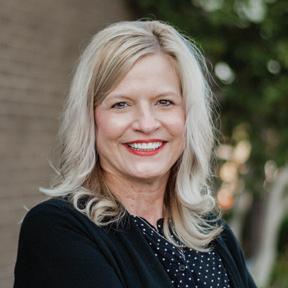


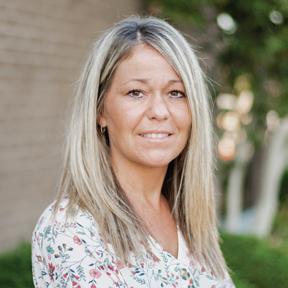
I want to thank all the employees for their hard work and commitment to the membership. — David Lett, CEO

JUNE 7–10
A fun, powerful and unique camp experience designed for students entering seventh grade in 2023. Horseback riding, canoeing, zip lining, trying out archery, swimming, learning about electrical safety and bucket truck rides.
APPLY: Apply by March 1 at CampKilowatt.org
Indiana K-12 students are invited to enter the Cooperative Calendar of Student Art Contest for a chance to illustrate an award-winning wall calendar. Each year, 13 first-place winners and honorable mention winners will have their artwork featured in the calendar and will receive cash prizes.
APPLY: Apply and learn more at indianaconnection.org/for-youth/ art-contest . Submit entries by March 24.
JUNE 11–18
Harrison REMC wants to send you on a weeklong, all-inclusive trip of a lifetime to Washington, D.C. Monuments, museums, legislators, friends, history. Must be a high school junior to apply.
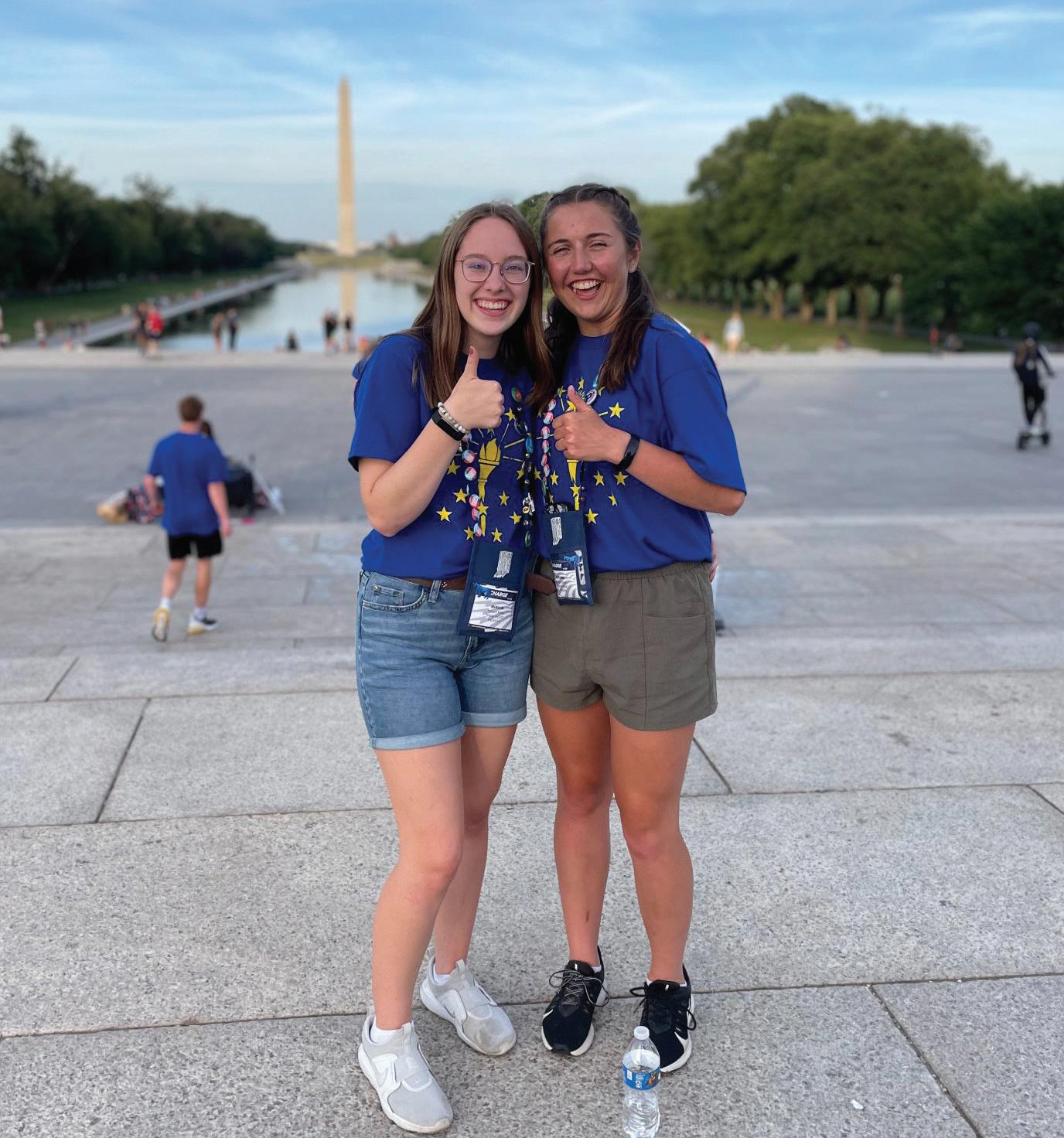
APPLY: Apply by March 1 at IndianaYouthTour.org
Harrison REMC continuously looks for ways to support our community. That’s why each year we assist our young members in their pursuit of higher education by awarding $1,500 scholarships to our graduating seniors.
The scholarship is open to high school seniors who have been accepted to attend a college or university located in Clark, Floyd or Harrison counties in Indiana or Jefferson County in Kentucky. The student must be a full-time student (12 credit hours) for the fall semester. See the application for more eligibility requirements and rules.
APPLY: Download an application at www.harrisonremc.com . Hover on the “my cooperative” tab and then the “youth programs” dropdown. Applications must be postmarked by March 24.
At Harrison REMC, our primary goal is to provide safe and reliable power to the membership. To help us succeed in reaching our goal, we maintain a comprehensive right-of-way program, designed to help us fulfill our purpose while remaining environmentally responsible.
We proudly serve 23,000+ meters with 2,400+ miles of electric line across five counties. We’re dedicated to ensuring a high level of service reliability. We clear rights-of-way using the safest and most efficient methods to ensure adequate and safe distance from trees or other vegetation. Our subject matter experts are always involved in right-of-way related projects, to help ensure we maintain a high level of environmental responsibility.
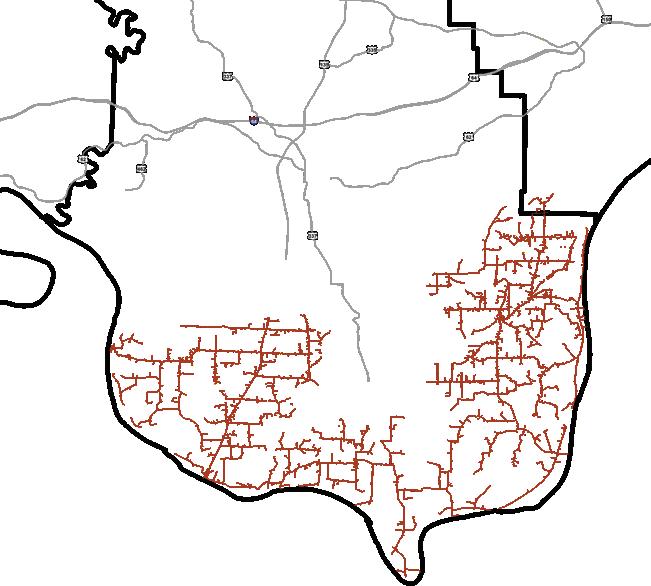
A right-of-way (ROW) refers to a strip of land underneath or around power lines that Harrison REMC has the right and responsibility to maintain and clear.
Trees must grow at a distance far enough from the conductors that they will not cause harm to individuals or disruption to electrical service.
Harrison REMC’s specifications can vary, but a general guideline for maintaining safe ROW clearance is 15 feet of a single-phased line and 20 feet for a multiple-phased on either side of the primary conductors, cut ground to sky. Maintaining these clearances allows Harrison REMC easy and safe access to our poles and equipment in the event of a power
outage, which also speeds up power restoration.
Clearing of ROW is critical to keeping our members’ lights on. A large percentage of our power interruptions occur because trees, shrubs or bushes grew too close to power lines. If a tree intrudes on this safe working distance, our vegetation management team will trim back branches and brush using chainsaws, bucket trucks, tree climbers, brush chippers, mowers and sky trimmers. Herbicide is also used to combat the growth of low-growing plant species that will compete with the tall trees growing beneath the power lines.
ROW clearing also keeps your family safe by ensuring that tree branches do not become energized due to contact with a power line. Harrison REMC’s power lines can carry up to 12,470/7,200 volts, and an energized tree branch can be very dangerous or even deadly. Be mindful when you’re around trees growing close to power lines, and make sure your children know that climbing trees near power lines is extremely dangerous. Staying ahead of the game helps us avoid coming out after a storm to restore power due to fallen trees and broken branches.
During 2023, Harrison REMC will be performing follow-up ROW and targeted herbicide application out
of the Mauckport and Elizabeth substations (Figure A).
Harrison REMC will also be performing routine tree trimming, mowing and removal of dangerous trees out of the Corydon and Bradford substations (Figure B).
If you have any questions concerning this matter, please contact our office during the normal business hours of 7:30 a.m. to 4:30 p.m., Monday through Friday, at 812-738-4115 or 812-951-2323.


With inflation driving costs higher on multiple fronts, including energy, finding ways to save money is crucial in the current economy.
There are two ways to go about home energy savings — energy efficiency and energy conservation.
The two are often confused as the same thing, but there are important distinctions.
Energy efficiency means using specific products that are designed to consume less energy.
For example, upgrading an old HVAC system or installing new windows are just a couple of ways to improve your home’s energy efficiency.
Not only can you save money with improved efficiency, but there are a number of tax credits available for installing more energy-efficient home systems. Any system placed in service

between Jan. 1 and Dec. 31, 2023, is eligible for a 22% tax credit provided other criteria are met. Those criteria vary from system to system.
Eligible systems include things like wood or pellet stoves, geothermal heat pumps, small wind turbines and solar energy systems such as water heaters or panels.
If those projects are beyond your budget, there are still plenty of opportunities for energy conservation.
Energy conservation involves using less energy for cost and environmental reasons and making adjustments to your activities on a day-to-day basis.
Some examples are switching to energy-saving light bulbs, using smart power strips, installing a programmable thermostat, ensuring your home is fully insulated, washing clothes in cold water and letting them air
dry, washing dishes by hand, replacing air filters, using the microwave instead of the stove, taking advantage of natural light when possible, and dressing appropriately for the weather both inside and outside of your home.
These small things might not seem like much, but every little bit adds up to monthly savings. There are always ways to conserve energy — even if you can’t always be as energy efficient as you might want to be.
by Brian Reynolds Energy Advisor Jackson County REMC
Emily,
Thank you for your years of service to Indiana Connection! I have come to know the magazine through just the last several years. That’s when I retired from 30+ years of teaching elementary school in Mitchell. The magazine never disappointed — a laugh, information, fun with a recipe, even a tear or two while reading a memorable piece.
Many blessings to you on your second act,
GLENDA FERGUSON
Via email
Happy retirement, Emily!
I love Indiana Connection magazine. May 2023 be a very prosperous, healthy, and happy new year for you in every way. I wish you much happiness in your retirement and that the Lord’s blessings be upon you richly. Enjoy your retirement.
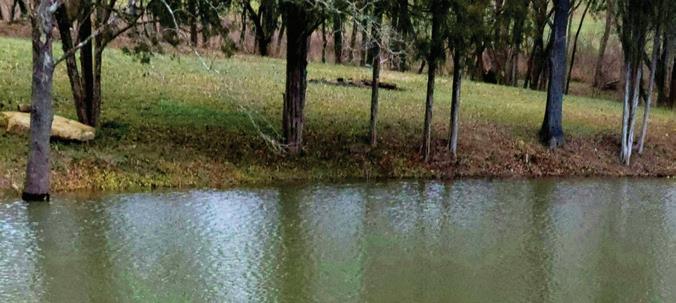
JUDY ARNOLD
Via email
Congratulations on your retirement, Emily. Thank you for sharing some of your life in the “from the editor” blurb. I could totally identify with your column on clutter, nostalgia (I always wanted a pink princess phone) & changing hairstyles. Your pondering made me smile.
Thank you.
JODI GROVES
Via email


Montgomery County’s seat of Crawfordsville features two historic sites that are now public museums. One fits into its selfproclaimed nickname as the “Athens of Indiana” because of the number of authors who were born or have worked there, and the other revolves around a novel form of incarceration.
The General Lew Wallace Study & Museum , 200 Wallace Ave. in Crawfordsville, was orginally designed and built by Lew Wallace as his personal study in 1895. Wallace was a lawyer by trade, but he was a true renaissance man: a Union general in the Civil War, governor of the New Mexico Territory, politician, diplomat, inventor, artist, musician and author. Today, he is most remembered for writing “BenHur: A Tale of the Christ.”
Published in 1880, the bestselling novel has been called “the most influential Christian book of the 19th century,” and has never been out of print. It outsold every book except the Bible until “Gone with the Wind” came out in 1936.
Wallace started “Ben-Hur” in the late 1870s while traveling and in Crawfordsville, where he often wrote outdoors during the summer, sitting under a favorite beech tree near his home. His study and accompanying
carriage house make up the museum and exhibit many of the artifacts that Wallace used during his lifetime, as well as several objects pertaining to his literary legacy. Located on 3.5 acres of wooded grounds, the museum is a National Historic Landmark.
For information about hours, tours, and admission charges, visit www.ben-hur.com or contact the museum directly at 765-362-5769. Email study@benhur.com for more information.
The Rotary Jail Museum is located in downtown Crawfordsville. The county’s third jail, completed in 1881, incorporated a rotary or carousel concept, which was designed by architect William H. Brown and built by the Haugh, Ketcham & Co. iron foundry in Indianapolis.

It was the first of 18 rotary jails built in the United States, the last to house prisoners, one of only three still existing, and the only one that still works. Montgomery County’s jail had its rotary mechanism disabled around the late 1930s and the jail closed in 1973. Two years later, the rotary mechanism was restored,
FOUNDED: 1822
NAMED FOR: Richard Montgomery, an American Revolutionary War general killed on Dec. 31, 1775, while attempting to capture Quebec City in the Battle of Quebec.
POPULATION: 37,936
COUNTY SEAT: Crawfordsville
INDIANA COUNTY NUMBER: 54
and the facility reopened as the Old Jail Museum. Also in 1975, the jail was listed on the National Register of Historic Places. Additional renovations and restorations occurred in the following years.
For information about hours, tours, and admission charges, visit rotaryjailmuseum.org or contact the museum directly at 765-362-5222. Email contactus@ rotaryjailmuseum.org, or find the museum on Facebook.

still exists and can now produce over 10,000 pies in an 8-hour shift.
Where else would you find one of the best places for pie in Indiana than on “Cherry Street”? That’s where Mrs. Wick’s Restaurant & Pie Shop is located in Winchester. Founded by Duane “Wick” Wickersham and named after his wife, Ruby, Mrs. Wick’s is a full-service “bakery café” that has been in business for over 35 years.
Wick’s entrepreneurial spirit prompted him to open a cantina inside a local factory in 1944, and after selling the cantina to the factory to run, he started The Rainbow Restaurant in downtown Winchester. Wick used many of his grandmother’s recipes, and the pies, especially the sugar cream variety, became a hit. Wick sold The Rainbow Restaurant in 1947 to focus on his pie business, and he started selling hundreds of pies a day. In 1961, Wick purchased a building east of downtown Winchester and built a production line that allowed for the shipment of frozen pies. The building
When Wick retired from working in the pie factory in 1986, he opened Mrs. Wick’s Restaurant & Pie Shop right across the street. Wick sadly passed away in 2008, but members of the Wickersham family still run the restaurant and pie company today. Mrs. Wick’s restaurant is open Tuesday-Saturday from 6 a.m.-2 p.m. and is the perfect spot for early birds or lunch aficionados.
Inside the restaurant, you’ll find an outlet store with a rotating inventory that may include chicken pot pies, noodles and a variety of unbaked frozen pies.

Come hungry, because the hometown, hearty offerings are generous and tasty. Breakfast is served all day and includes favorites like biscuits and sausage gravy, Western omelets and blueberry pancakes. If you’re more in the mood for a sandwich, there’s “Wick’s Alley Oop,” which is a cheeseburger topped with cole slaw and served on Texas toast.
Regardless of what you start with, the main attraction at Mrs. Wick’s is the pie. The restaurant’s website claims they offer 36 varieties of pie every day, ranging from apple walnut to German chocolate. Every pie is available by the slice, and you can also top off your offering with a scoop of ice cream if you’re so inclined.
If you only try one thing, Mrs. Wick’s sugar cream pie should be it. Also known as “Hoosier Pie,” the sugar cream pie was named the unofficial pie of Indiana in 2009 after the Indiana Senate adopted a nonbinding resolution. Containing cream, sugar and nutmeg, the pie is similar in taste to crème brûlée: lightly sweet and smooth like a custard — and Mrs. Wick’s version is a knockout.
No matter what you choose at Mrs. Wick’s, one thing’s for sure: You won’t leave hungry, and you’ll want to come back soon to sample another slice of delicious pie.
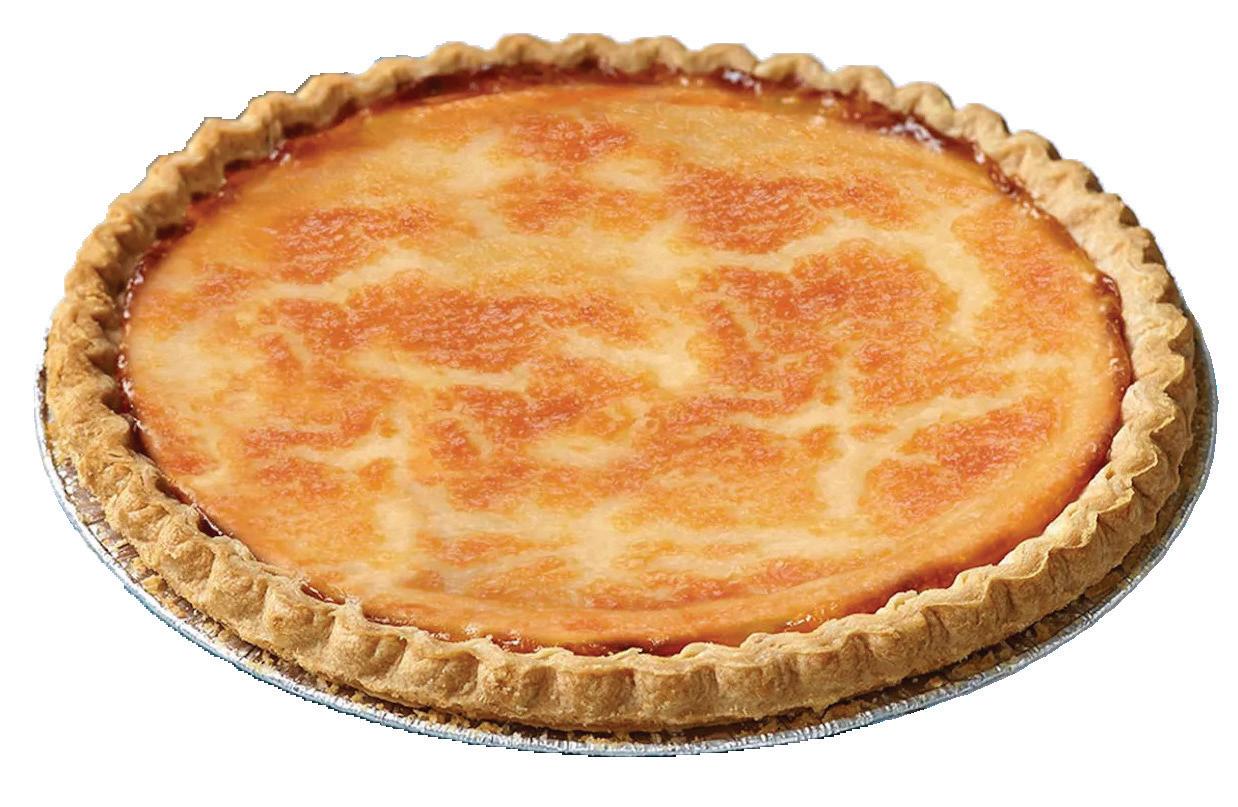
your sweet tooth at this charming pie shop and restaurant in Winchester.


Doris Ann Kahlert, Berne, Indiana
1 lb. ground beef
½ cup chopped onion
1 (8 oz.) can tomato sauce
1 package taco seasoning mix
1 (8 oz.) can crescent rolls
2 T. cornmeal
1 cup sour cream
1 cup shredded cheese
Optional: shredded lettuce, diced tomatoes, avocado slices and crushed tortilla chips
Brown beef and onion; drain. Stir in tomato sauce and taco seasoning mix; set aside. Separate crescent dough and place in an ungreased pie pan; press across bottom and up sides of pan to form a pie crust. Sprinkle cornmeal over crust. Bake crust at 375 F for 5 minutes and remove from oven. Lower oven temperature to 350 F. Spoon meat mixture into the pie shell and spread the sour cream over the meat.
Sprinkle with cheese. Bake at 350 F for 15-18 minutes. You can serve the pie topped with shredded lettuce, diced tomatoes, avocado slices and crushed tortilla chips.

3 oz. cream cheese, softened
3 T. butter, melted (2 T. for chicken mixture and 1 T. for baking)
1 (12.5 oz) can cooked chicken, drained
¼ t. salt
¼ t. pepper
2 T. milk
2 T. chopped onion
1 (8 oz.) can crescent rolls
¾ cup seasoned breadcrumbs
Blend the cream cheese and 2 T. butter. Add chicken, salt, pepper, milk and onion. Mix well. Chill mixture for at least an hour. Divide crescent rolls into 4 rectangles. Firmly press perforations to seal. Spoon ½ cup of the meat mixture onto the center of each rectangle. Pull corners of dough up over the meat mixture. Twist the top of the dough together and seal the edges. Brush tops of crescents with remaining 1 T. melted butter. Roll crescents in seasoned breadcrumbs. Bake in an ungreased 8-by-8-inch pan at 350 F for 30 minutes or until golden brown.

Laura Garza, Beech Grove, Indiana
1 (8 oz.) can crescent rolls

12 oz. cream cheese, softened
¾ cup granulated sugar
(½ cup for filling, ¼ cup for topping)
1 t. vanilla
1 (21 oz.) can cherry pie filling
½ stick unsalted butter, melted
Grease bottom of an 8-by-8inch baking pan. Line bottom of baking pan with four of the crescent rolls, unrolling and spreading them out to cover
the entire bottom of the pan. In a large mixing bowl, beat softened cream cheese and ½ cup sugar until smooth and well blended. Add vanilla and beat until mixed thoroughly. Spread cheese mixture over crescent rolls in baking pan. Pour pie filling over top of cheese mixture and spread evenly. Top with remaining crescent roll dough and spread out to cover evenly. Pour melted butter over top of dough. Sprinkle remaining sugar over the melted butter. Bake at 350 F for 35-40 minutes until golden brown.


Every true blue-blooded, gold-torchcarrying Hoosier probably knows the official state bird is the native Northern cardinal. And most Hoosiers could likely recite at least part of the refrain of the state song, “On the Banks of the Wabash, Far Away,” whether they live along the Ohio River, the southern tip of Lake Michigan, or in the watershed of the Wabash, the state river itself.

Like every state, Indiana has claimed many flora, fauna, fabricated objects and natural features as officially “ours” through acts of the General Assembly, as noted and amended in the Indiana Code Title 1, Article 2. Though Indiana’s list of official “this” and “thats” is far fewer than other states, such designations raise awareness and foster interest in the given subject. The entire process of naming one can be a learning experience.

When a grade school student from West Lafayette discovered that Indiana had no state insect in 2014, she and her classmates researched insects and then lobbied lawmakers for two years before Say’s Firefly became the official state insect in 2018.

After unveiling his 2023 agenda last month, Gov. Eric Holcomb said a bill would be introduced in this year’s legislature to designate the breaded pork tenderloin as Indiana’s official state sandwich.
Jeanette Merritt with the Indiana Pork Producers Association told Inside INdiana Business the designation will benefit Indiana’s pork producers and the numerous restaurants throughout the state that offer breaded tenderloins. This month, as the General Assembly continues work on the biennial budget and a variety of other bills, including an official state sandwich, here’s a look at some of Indiana’s official “youname-its.”
The Republic Aviation P-47 Thunderbolt

Known as the “Hoosier Spirit II” and the “Indiana Warbird,” the Republic P-47 Thunderbolt was a World War II-era fighter manufactured at Republic Aviation’s Evansville plant.
This snub-nosed aircraft was built in greater numbers than any other fighter aircraft because it was fast, dependable, could take major damage and survive, and packed effective firepower.

Commonly known as the “Red Bird,” the Northern Cardinal (Richmondena cardinalis cardinalis) is one of America’s favorite backyard birds. Seven states — Illinois, Indiana, Kentucky, North Carolina, Ohio, Virginia and West Virginia — have made the bird their state bird. Widespread and abundant, cardinals stick around year-round to brighten our gray Indiana winters. They are recognized by their “cheer cheer cheer,” “whit-chew whit-chew” and “purty purty purty” whistles. Of course, if you follow the Ball State University Cardinals, the “cheer” is more like a “Chirp! Chirp!”
The blue and gold state flag of Indiana was adopted by the 1917 General Assembly as part of the 1916 Indiana centennial celebration. At the time, Indiana was the last state to have an official flag.
The Daughters of the American Revolution held a competition to design the flag, which was won by Paul Hadley of Mooresville.
The flag features a golden torch and 19 stars on a blue field. The torch is a symbol of liberty and enlightenment; the rays represent their far-reaching influence. Thirteen stars in the outer circle symbolize the original 13 states; the inner semi-circle of five stars represents the next five states to join the Union; and the large star above the torch is a symbol of Indiana, the 19th state.
Though extensively grown as an ornamental plant for its very large and scented blooms, the peony (Paeonia) is not without controversy.
The peony is native to China, not Indiana. So, how did it get to be the state flower? According to a 2017 article in the Indianapolis Star, it was all politics.

Indiana has had four official state flowers. The carnation (native to England) was adopted by the legislature in 1913. The second, the flower of the tulip tree (actually native to Indiana), was adopted in 1923. Third, the zinnia (from Mexico) was adopted in 1931, the year the tulip tree itself became the state tree.
In 1957, a bill in the Senate called for the tulip tree blossom to be reinstated. It was then changed to the dogwood blossom. By the time it got to the House, a representative who was a commercial peony grower pushed for an amendment to make it the peony — which passed.
In 1995, a grassroots effort to select an Indiana native plant as the new state flower settled on the fire pink, which has tiny clusters of red starlike wildflowers, but that effort wilted in the legislature.
Unlike the state flower, the state fossil walked its way across
Indiana as far back as 2.5 million years ago. American mastodons (Mammut americanum) roamed Indiana until they became extinct about 10,500 years ago. Mastodons are now the most common Ice Age fossil found in the state.
Mastodons lived in herds and were predominantly forest-dwelling animals, as opposed to their contemporary, the larger, shaggier woolly mammoth, which mostly lived on grasslands.
The Indiana State Museum’s 2018 redesign allowed it to fully display Fred, the fossilized bones of a mastodon that was discovered in a peat bog near Fort Wayne in 1998.


The successful quest to name a state insect began with Kayla Xu, a West Lafayette second grader who realized Indiana was without a state insect during the 2014-15 school year.
Encouraged by her teacher, Maggie Samudio, Kayla and her classmates at Cumberland Elementary researched possible insects. In their research, they learned Purdue University entomologists had suggested Say’s Firefly 20 years earlier. Say’s Firefly, Pyractomena angulata, was a species first described in the 1820s by Thomas Say, the “Father of American Entomology” in New Harmony. The students picked up the torch for the firefly and carried it to the Statehouse.
Lawmakers from the West Lafayette area first joined with the students
continued on next page
continued from page 21
to author bills in 2017. Then, in 2018, Holcomb backed their proposal, and it passed that session.
“I know this bill bugged some of my legislative friends,” Holcomb said afterward, “but the truth is it’s a big deal to young students around the state who have reached out to us in support … Beyond the satisfaction these kids will feel when they look out on a hot Indiana summer night and see the state insect flashing away, the real beauty of this bill is the civic engagement it inspired in our youngest citizens. It’s taught them a great deal about how our lawmaking process works — and that if they are engaged, they can make a real difference.”
Before students and guests at Cumberland Elementary's gym, Holcomb had Kayla rest her hand on his as he signed the firefly bill into law. (Links to two previous stories about the students and the firefly can be found in this story on our website.)
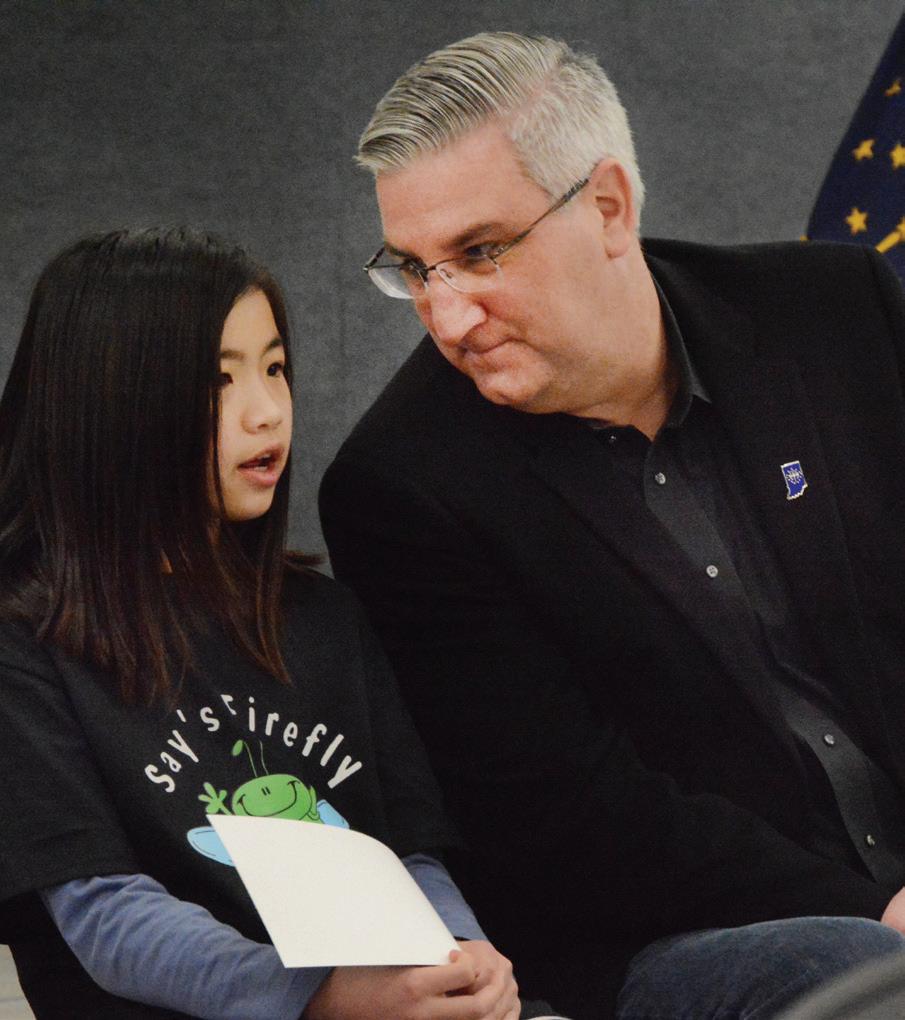
The poem, by Kendallville’s Arthur Franklin Mapes, was written in 1961. In part, it reads:
God crowned her hills with beauty, Gave her lakes and winding streams, Then He edged them all with woodlands
As the settings for our dreams.…
Indiana … is a garden
Where the seeds of peace have grown, Where each tree, and vine, and flower
Has a beauty … all its own.
Lovely are the fields and meadows, That reach out to hills that rise
Where the dreamy Wabash River Wanders on … through paradise.
Grouseland Rifle
Adopted 2012
The “Grouseland Rifle” is a long rifle created in the early 1800s for the then-governor of the Indiana Territory, William Henry Harrison. The firearm is kept in Vincennes at its namesake Grouseland, Harrison’s previous home as territorial governor.
The rifle was crafted by Col. John Small of Vincennes. The Grouseland mansion is now a museum maintained by The Grouseland Foundation at 3 W. Scott St. in Vincennes. Visitors can not only see the Indiana state rifle, but also an interpretation of territorial life and why the gun was important, and learn more about the legacy of William Henry Harrison, the westward expansion of the country and the development of the state of Indiana.
Wabash River
Adopted 1996
The Wabash is the longest river in Indiana, flowing some 500 miles through or along 18 counties and through 11 county seats.
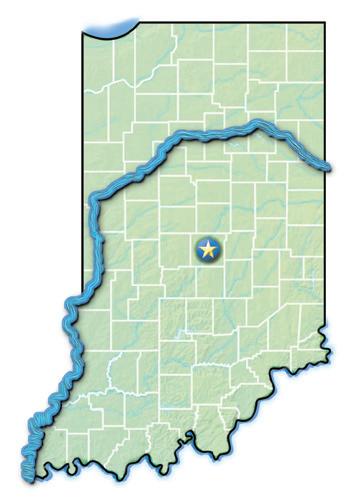
From its origin in western Ohio, the Wabash enters Indiana as a trickle near New Corydon in northern Jay County. It then flows westerly across Northern Indiana until it takes a sharp lefthand turn southward to eventually form the state’s southwestern border with Illinois before flowing into the Ohio River.
Along the southwest corner of the state, the Wabash played a crucial role in the founding of Vincennes, Indiana’s first city, from where so much of Indiana’s history flows.
The Wabash River is also the theme of Indiana’s state song, is mentioned in the state poem, is part of the name of Indiana’s honorary award (the Sagamore of the Wabash), and runs beside Grouseland (home of the state rifle) and New Harmony, where Say discovered the state firefly.
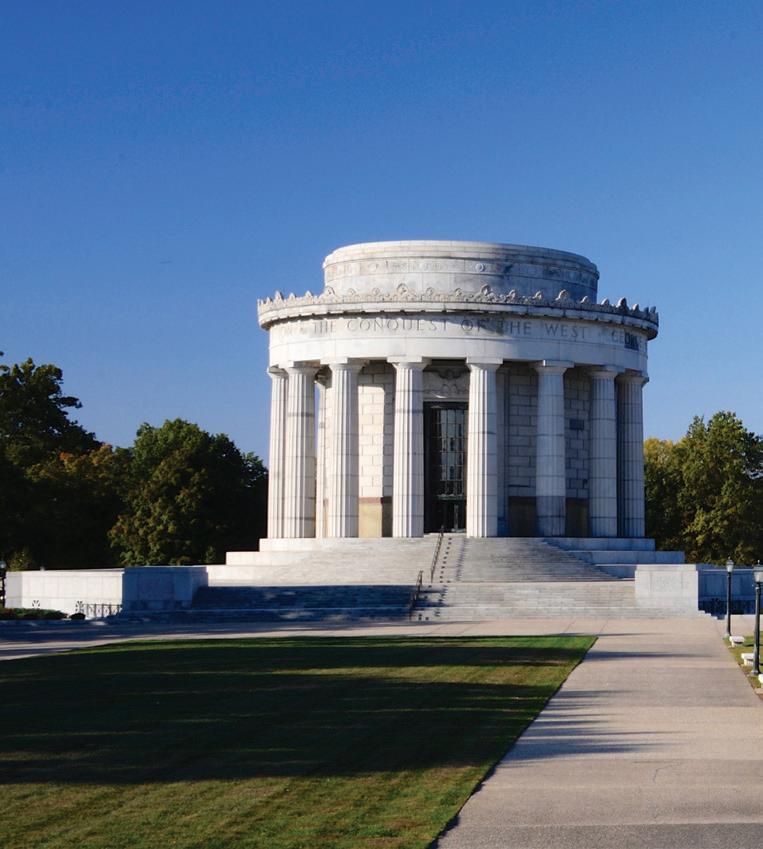
Adopted
Versions of this pioneer scene are found on official Indiana documents as early as 1801, when it was the Indiana Territory. A state seal was provided for in the 1816 and 1851 Indiana constitutions, but it was not until 1963 that the Indiana General Assembly provided an official description for the state seal.
The Indiana seal design consists of a woodsman chopping a tree with his ax and a buffalo jumping over a log, with sycamore trees, hills in the background and a sun with 14 rays.
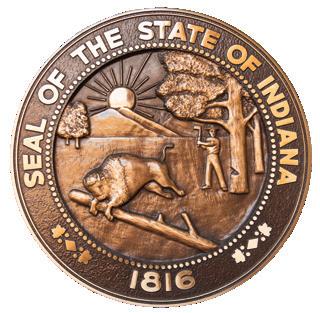
According to the USDA, Indiana was the nation's largest popcorn producer in 2021. Nearly 100,000 acres were devoted to growing popcorn, particularly in White and Pulaski counties. Orville Redenbacher’s, Pop Weaver and Cousin Willie’s are all popular popcorn brands that originated in Indiana.

“On the Banks of the Wabash, Far Away”
Adopted 1913
The song was composed by Paul Dresser, reminiscing about his childhood home along the Wabash River in Terre Haute. Dresser wrote the song in 1897. Its bittersweet chorus begins, “Oh, the moonlight’s fair tonight along the Wabash.”

It was among the best-selling songs of the 19th century, earning over $100,000 from sheet music revenues, and it remained popular for decades. It was among the earliest pieces of popular music to be recorded.
Dresser’s birthplace and boyhood home, a state shrine listed on the National Register of Historic Places, now sits in Terre Haute’s Fairbanks Park, a stone’s throw from the river. Dresser was actually born “Dreiser” and was the older brother of novelist and social reformer Theodore Dreiser.
Limestone
Adopted 1971
The Indiana variety of limestone, also called Salem or Bedford, is significantly quarried in south-
central Indiana. It is a high-quality stone that has been used in buildings such as the Empire State Building and the Pentagon.
Bedford is known as the “Limestone Capital of the World.” Limestone quarried and carved in Bedford is featured on famous buildings across America. Indiana’s Statehouse in Indianapolis was also built with southern Indiana limestone.
According to the Minerals Education Coalition: “Limestone is a sedimentary rock composed mostly of the mineral calcite and comprising about 15% of the Earth’s sedimentary crust. It is a basic building block of the construction industry and a chief material from which aggregate, cement, lime and building stone are made.”

Adopted 1931
The tulip tree (Liriodendron tulipifera), also called the tulip poplar or yellow poplar, has a distinctive leaf shape and huge, bellshaped flowers that appear in May or June. It is a tall tree that grows throughout Indiana. Incidentally, its flower was the state flower (as noted previously) from 1923-1931. The tree’s soft white wood has many uses. Though referred to as a poplar, it’s actually a member of the magnolia family.

Sources for this story include:
https://statesymbolsusa.org/states/unitedstates/indiana
https://iga.in.gov/legislative/laws/2016/ic/ titles/001/
https://www.in.gov/history/about-indianahistory-and-trivia/emblems-and-symbols/
Photo courtesy of Marsha Williamson MohrDon’t rely on extension cords to solve the problem of inadequate electrical outlets. Recognize the signs of an overloaded outlet; if your outlets are overloaded, head to your circuit panel and reset them. Familiarize yourself with your circuit panel before problems could occur.
It’s a common problem for most of us: relying on a handy dandy extension cord since we have so many devices and not enough outlets to plug them all into. For safety’s sake, extension cords should only be used short-term.
“It’s easy to grab an extension cord when you’ve run out of outlets,” said Jon Elkins, vice president of safety, training and compliance at Indiana Electric Cooperatives. “Their convenience is undeniable. But relying on them day in and day out means your home doesn’t have enough outlets.”
Why is that a potential problem?
Electrical overloads can occur when your home draws more electricity than a circuit can safely handle. When a circuit receives too much electricity, it causes the circuit breaker to trip. That shuts power off to the entire circuit.
Breakers are critical components to the circuit’s safety. If there were no breaker in the circuit, an overload would occur, causing the wires to overheat. That could lead to a fire.
There are several signs which could indicate whether circuits in your home are overloaded. Among them:
• Flickering, blinking or dimming lights
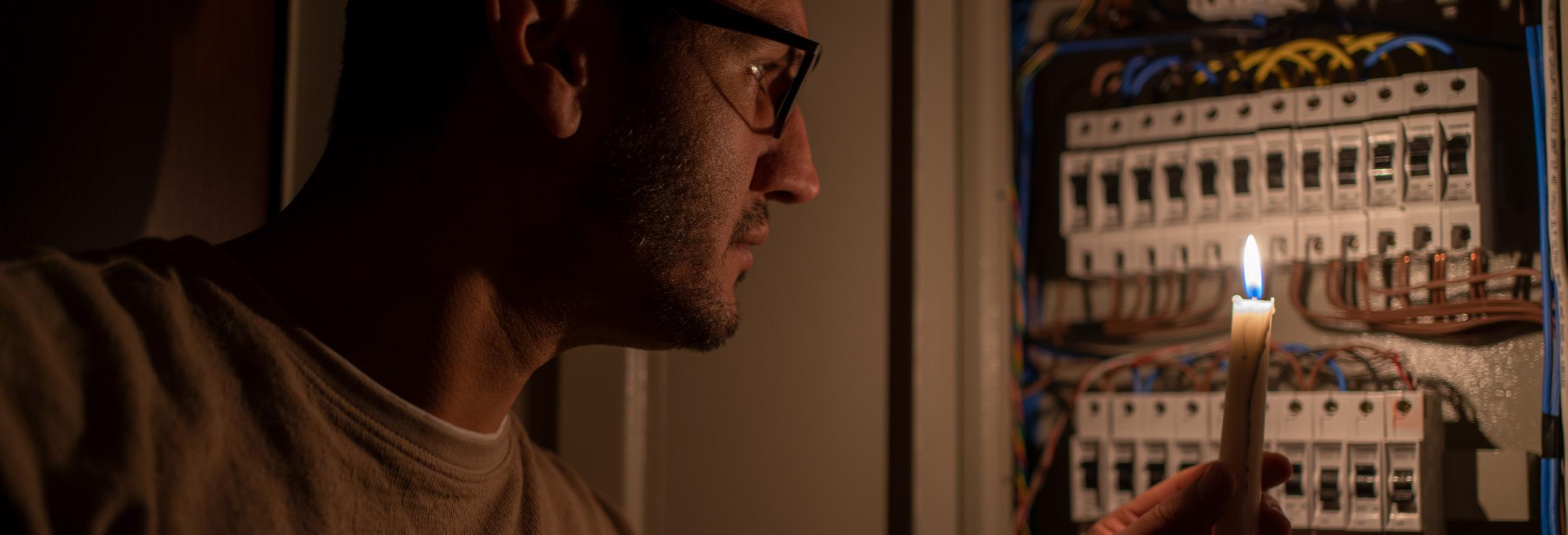
Many of us understand how to operate our personal electronics, but what about your home’s breaker box? Here’s what to do if your breaker is tripped:
• Unplug or turn off appliances in the room.
• The outlet switch covers are warm to the touch
• Burning odors from outlets or switches
• Frequently tripped circuit breakers
• Crackling, sizzling or buzzing from receptacles
• Mild shock or tingles after touching appliances, receptacles or switches
• Power tools, appliances or electronics seem to lack adequate power
If any of these things are occurring, head to your circuit panel. It’s usually located in the basement or garage. Check to see if any of the switches in the panel have been tripped or partially tripped. Turn them off — then back on again. Knowing what is on each circuit will help you navigate possible overloads in the future. Indiana Electric Cooperatives suggests consumers grab a notepad and pencil to map their home’s circuits. Do this before potential problems occur. You’ll be glad you took the time to familiarize yourself with the circuit panel ahead of time.
• Find your main breaker panel and open the cover.
• Locate the tripped breaker or blown fuse. A tripped circuit breaker will be in the “off” position or in a middle position between “on” and “off.”
• To reset the breaker, switch it to the “off” position and then back to “on.”
If the problem persists, there may be more serious issues. Contact an electrician to identify the problem.
• Keep extension cords away from water.
• Teach older kids how to safely plug in and unplug an extension cord — look out for exposed wiring and never yank on cords.
• Do not plug too many things into an extension cord. Are your gaming consoles, phone charger and computer all on one extension cord? You might want to consider moving them to other outlets.
• If your home is displaying signs of having an overloaded circuit, have a qualified electrician do an inspection. A heavy reliance on extension cords could indicate you have too few outlets.
Don’t underestimate
In four short years, Stefanie Lifford has gone from taking calls from individual consumers to now working on the electric distribution side monitoring power flow, troubleshooting outages, and helping keep the lights on for large numbers of consumers at a time.
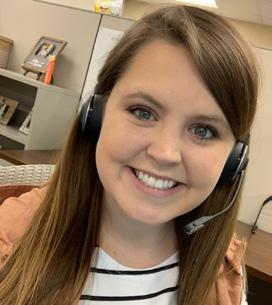

“That was really the big picture for me,” she said. “As a customer contact representative, I would take calls from customers saying they have an outage and submit the ticket for service. I didn’t really know what happened after that.”
After moving to the dispatch side of the business, Lifford began assigning to crews and servicemen those outage tickets she used to create. “It was nice seeing it go full circle — what happens with that information, how it’s processed, and how we get that result for the consumers.”
Lifford, 30, began her career at a large investor-owned utility that serves a large portion of Indiana. There, too, she started in the call center before moving into the department that investigated meter tampering and electricity theft.

At that utility, she said she felt more like a number, not a person. Meanwhile, in the six years she was there, she kept hearing
coworkers talk about South Central Indiana REMC.
“Everyone said it’s just a great place to work.” So, she applied and was hired at the REMC in June 2019.
“The work-life balance is here at the REMC, and the flexibility is here,” she said. “We just have a really good work dynamic. Everyone is willing to help each other out. It’s just very family-oriented here. If I hadn’t come to a cooperative, I don’t know that I still would be in this industry,” she said.
Soon after coming to South Central, Lifford said a coworker in operations pushed her to move to a dispatch position. Within a year, Lifford made that move and that employee became her mentor.
Lifford said she developed a passion for electricity and a love of learning as much as she could. The co-op enrolled her in the Northwest Linemen College where she is working to achieve system operator I certification. When that mentor left to pursue new opportunities at a cooperative in Colorado, Lifford was able to move up another notch.
The dispatcher and system operator, she explained, do the same thing. But the operator has more independence and is in charge. During an outage, for instance, an operator works with engineering to make decisions involving the remote switching that allows the co-op to reroute electricity from other substations to get around a problem area. This helps get affected consumers back in power more quickly. “I honestly love it,” Lifford said. “The switching part is kind of like a puzzle.”
She has now applied to Indiana Tech to earn an electrical engineering technology degree. “I would love to eventually move into management — but stay in the operation side, the electrical distribution side of everything.”
The past 15 months have been busy ones on the legislative front, and Hoosier Energy is looking to maximize the opportunities that accompany the passage of both the Infrastructure Investment and Jobs Act as well as the Inflation Reduction Act.

Both of those bills include a number of programs connected to the energy sector and utility industry. Efforts to take advantage of those are led by Matt Randall, manager of public policy and community relations at Hoosier Energy.

“Between these two pieces of legislation, it is the single largest investment in the energy industry since The New Deal in the 1940s when Hoosier Energy was founded,” Randall said. “So we are connecting with NRECA nationally and our partners at Indiana Electric Cooperatives (IEC) to find opportunities for Hoosier.”
That means a lot of sifting through the options and putting them in the right pile.
“The intent of the legislation and accompanying changes are to further spur things in the industry that we are already doing or considering, so all we see are positives,” Randall said. “We’ve already begun applying for various grants.
“For example, there are billions of dollars available in electric vehicle infrastructure adding to the work already being done in the industry. And with transmission, we’re not sure how much Hoosier will benefit directly, but if those programs facilitate transmission development in the Midwest and Indiana, it would certainly be of value.
“There’s upside not only for Hoosier but for cooperatives around the country.”
Many of the programs are still emerging or will emerge throughout 2023, so the work is ongoing. And there’s always the potential for new bills to be passed with further ramifications for the industry and Hoosier Energy.
“The major legislative initiative we are looking for from a federal perspective is supporting permitting reform,” Randall said. “We are supporting NRECA and industry efforts to get Congress to pass permitting reform to reduce some of the roadblocks and inefficiency as the industry looks to invest billions in transmission infrastructure and renewable energy.
Matt Randall Manager of Public Policy and Community Relations HOOSIER ENERGY“Here in Indiana and Illinois, we will be working alongside our statewide associations to encourage lawmakers to support policies that help us on affordability while giving Hoosier flexibility as we meet our resource capacity needs in the future.”
Valentine’s Day falls perfectly between the year-end holidays and spring break, which is usually still a month or so away. In the deadest of winter, Valentine’s Day is a shining moment that gives everyone from harried parents to budding couples a chance for some rest and romantic relaxation.
Whether you live in the northern or southern half of Indiana, a romantic getaway is a short drive and an overnight or weekend stay away. Each location offers plenty of romance, along with nearby recreational opportunities from which to relax later.
Hoosier cuisine made from locally sourced ingredients. The town’s former residences and workspaces have been transformed into 15 guestrooms and cottages. The inn encourages tranquility and therefore, doesn’t offer phones or televisions.
and Blue House, a home constructed in 1920.
The long and winding road to the tiny town of Story will never disappear — to invoke the Beatles’ classic song — at least not as long as the Story Inn provides its fine dining amid charming rustic lodging.
Deep in the hills of Brown County, the old Story General Store serves up
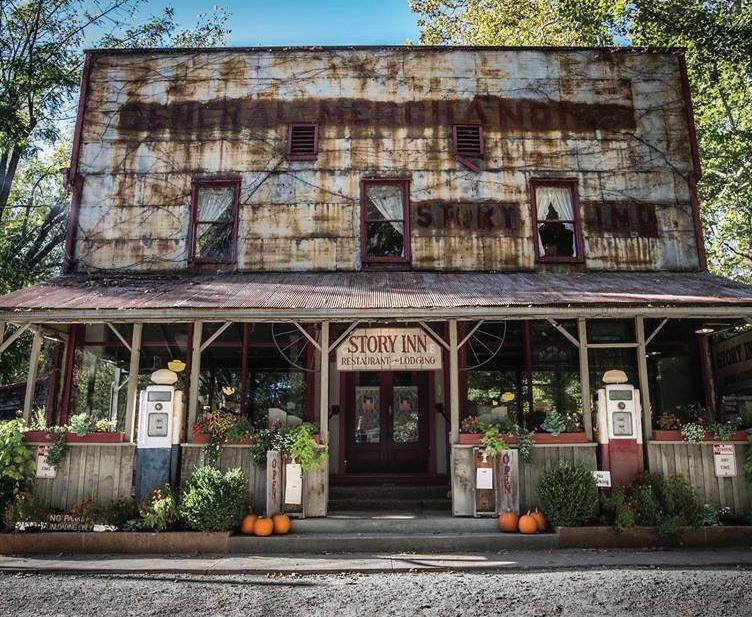
Staying in one of the unique rooms or cottages is a step back into the 19th century. Four rooms are located above the restaurant: the Blue Lady Room, named for a ghost seen over the years by guests; the Morrison Kelley Room, the largest; the Hedrick Room; and the Lieber Room.
Cabins and sleeping quarters include a renovated one-room schoolhouse; a loft in a historic grain mill; the Doc Story House, a historic Victorian-style home;
Just northwest of Story is Nashville, which features craft shops; restaurants; craft breweries and distilleries; bigname entertainment; and, of course, Brown County State Park. Story also sits on the north edge of the Hoosier National Forest with its many hiking trails, and Monroe Lake to the west.
Three winter getaway packages are offered through March that include dinner for two in the tavern. An extended stay weekday special is also offered.
To make reservations for dinner, lodging or both, call 812-988-2273, or email reservations@storyinn.com.
appointed with modern conveniences such as a fireplace, a sunken whirlpool tub for two and a “Butler door” for private deliveries.
Serenity Springs is an award-winning couple’s resort with over 30 private cabins nestled on 85 wooden acres. Each cabin is designed to “allow couples to indulge in privacy, comfort and romance.” The cabins are
Located 20 minutes from the Indiana Dunes National Park, Serenity Springs is a perfect spot to unwind and reconnect with a loved one. Spend your visit relaxing in your cabin or venture out to experience the local attractions of the dunes, lakeshore or Michigan City. During the winter, bring your crosscountry skis, or Serenity Springs can lend you some snowshoes. Take a walk through the snow-covered trails or feed the feathered friends.
Feel like relaxing indoors? Stay cozy with the warmth of a beautiful fireplace and heated floors in your private cabin. No matter what you choose to do during your romantic getaway, Serenity Springs is your ultimate winter romance destination.

A variety of stay packages, from one night to five with weekday or weekend rates, are available. Every stay includes breakfast and snack baskets, and packages with amenities like plush robes and scented candles are also available.
For reservations, call 219-351-9849.
Samsung has recalled several models of its top-load washers with super speed wash. The washing machines can short-circuit and overheat, posing a fire hazard.
Samsung has received 51 reports of smoking, melting, overheating or fire involving the washers; 10 of which resulted in property damage. Three consumers have reported injuries due to smoke inhalation. The appliances were sold at Best Buy, Costco, The Home Depot, Lowe’s and other appliance stores nationwide and online at Samsung.com from June 2021 through December 2022 for between $900 and $1,500.
The units came in white, black, champagne and ivory colors and include model series WA49B, WA50B, WA51A, WA52A, WA54A and WA55A. The model and serial numbers are found on the washer’s label attached to the inside of the top lid. An additional label is located on the rear of the washer.

Contact: Samsung at http://www.samsung.com and http://www.samsung.com/us/support/ tlw-sw-update or by phone toll-free at 833-916-4555 if you cannot determine if your Samsung washing machine is involved in the recall, or if you want to learn how you can update the software of Wi-Fi equipped washers or wish to receive free software.
Newair has recalled two models of its Magic Chef Air Fryers. The air fryer can overheat, posing fire and burn hazards. Model numbers MCAF56DB (black) and MCAF56DW (white) are affected. The air fryers measure about 13 inches by 15 inches by 14 inches. They were sold online at Amazon.com, BedBathandBeyond.com, Walmart.com, Kohls.com, HomeDepot.com, Bluestem. com, QVC.com, Wayfair.com, Newair.com, Overstock.com, BestBuy.com and Ebay.com from July 2018 through September 2020 for between $115 to $138.

Contact: Newair at 833-715-1021, on online at https://www.newair.com/pages/newairmagic-chef-digital-air-fryer-recall or https://www.newair.com/pages/recall-registration for online registration.
Forty-one models of Hunter lighting fixtures — from the Devon Park, Astwood, Highland Hill, Kerrison and Van Nuys lighting collections — have been recalled. Internal wires in the lights can be damaged, posing an electric shock hazard to the consumer. The units were sold online at www. hunterfan.com and other online lighting websites from October 2021 through September 2022 for between $110 and $450.

Contact: Hunter at 866-326-2003, or online at www.hunterfan.com and click on the “Recall” link at the bottom of the page or www.hunterfan.com/recall for more information.
As a service to our readers and to promote electrical safety, here is a recent recall notice provided by the U.S. Consumer Product Safety Commission. Visit www.cpsc.gov/en/recalls for full details of this recall and for notices of many more.

